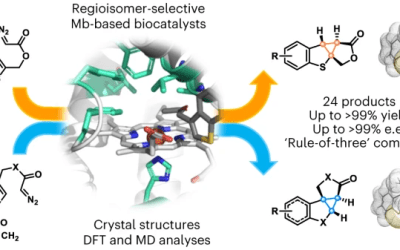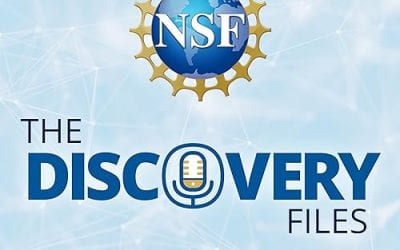Enzymes are proteins that control and catalyze chemical reactions essential for life.
Nature’s ability to employ highly evolved biological catalysts to generate diverse and complex molecules through selective reactions has inspired chemists for decades, leading to the field of biocatalysis. The potential societal impacts of biocatalysis are significant, yet chemists have only recently begun to leverage these efficient and selective natural processes. The NSF Center for ChemoEnzymatic Synthesis seeks to develop unprecedented transformations and achieve new selectivity strategies by applying novel concepts in biocatalysis. These advances will allow the scientific community to address 21st-century challenges in the production of new medicines and materials.
News
Applications are open for the 2025 BioCat 101 Workshop
Further details, as well as the application form can be accessed here.
Fasan group publishes on a biocatalytic strategy for polycyclization
Congratulations to Prof. Fasan and his group and their latest publication entitled "Biocatalytic strategy for the construction of sp3-rich polycyclic compounds from directed evolution and computational modelling". You can read it here.
Prof. Gabe Gomes interviewed on NSF Discovery Files
C-CAS and CCES member Prof. Gabe Gomes was just interviewed as part of the NSF's Discovery Files Podcast. You can listen to their discussion on "Advancing Computational Chemistry" on Apple Podcasts, Spotify, Google Podcasts, and Amazon, or by searching for NSF...


